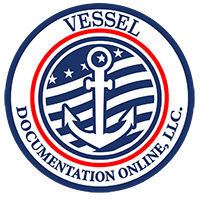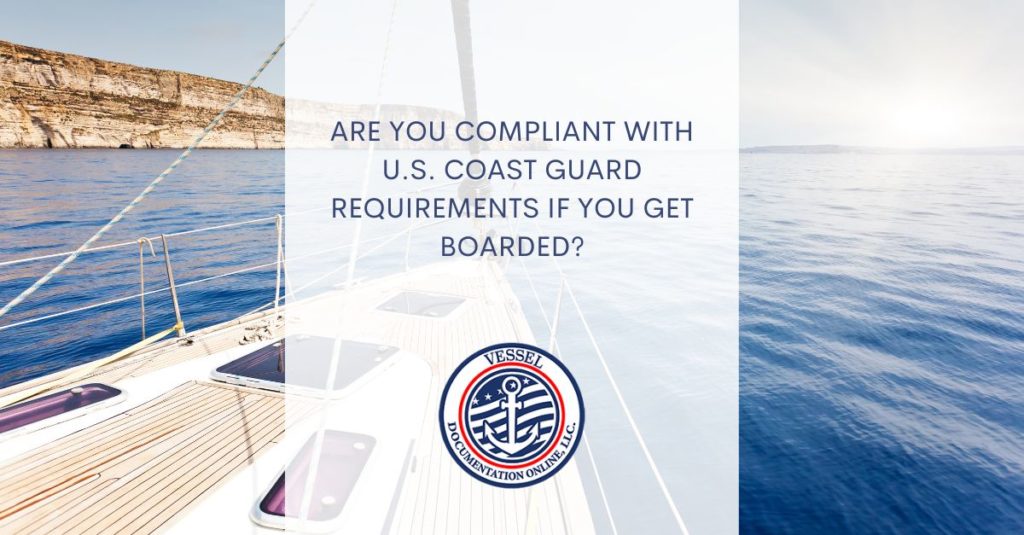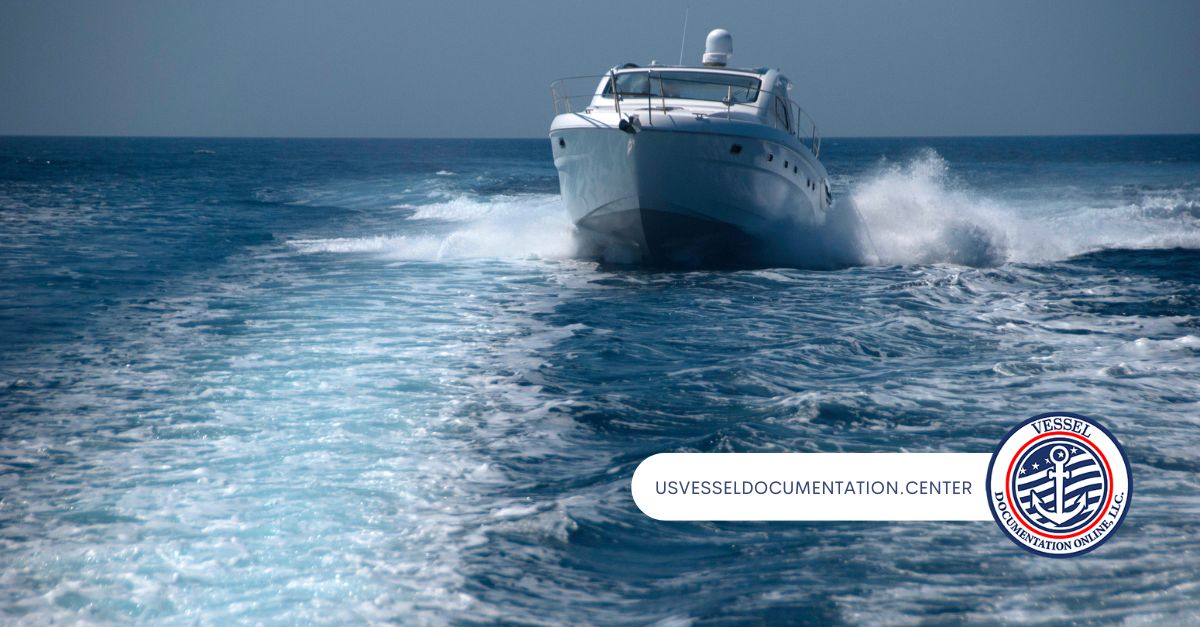Understanding the U.S. Coast Guard requirements and staying familiar with them is an important part of owning a boat. If you happen to get stopped while out on the water, which is usually a routine check, you will be required to produce documentation for your vessel, much like you do when pulled over on the road in your vehicle. That means knowing what information the Coast Guard is looking for so you have it readily available if you are stopped for any reason. Keep reading to find out what information you should keep handy.
Registration and Numbers
Each boat is given its own unique number, much like cars, trucks, and SUVs have a license plate that denotes who the vehicle belongs to. You must have your vessel’s certificate of number, or registration, on board the boat at all times. Your boat’s number must also be displayed on the front of the vessel, both on the starboard side and the port side. The numbers should be in block format and be at least three inches high. They must also be in a visible color. Spaces can be left where necessary, or the use of dashes can replace the space. You’ll also need to affix your current registration sticker next to the boat’s number.
Hull Identification Number (HIN)
Any boat produced after 1972 is required to have a hull identification number, which you can liken to the vehicle identification number, or VIN, located on your car, truck, or SUV. This number identifies the boat and is required for identification. It must be displayed on the upper right portion of the transom and cannot be altered in any way. Your boat’s HIN will be on most of its documentation as well.
Boat Specific Documents
As mentioned above, if you are boarded by the United States Coast Guard, you will need to be able to produce your vessel’s registration, but it’s also a good idea to keep all documents pertaining to your boat close at hand. You will need your documents if you plan to take your boat overseas, but even locally they are important for providing ownership of the watercraft. Even if the boat is registered on the federal level, it may also need to be registered with your state. If that’s the case, keep both sets of registration paperwork where you can get to them easily.
The use of your boat is restricted in some cases. For example, if you register the boat for recreational use, it cannot be used for commercial use. Your documentation will denote what the purpose of the boat is and you could face a fine if you’re using it incorrectly. Keep in mind that your boat must weigh at least 5 net tons to be eligible for registration with the United States Coast Guard. However, all documentation should be where you can readily access it, should the need arise.
When you need to submit paperwork to comply with U.S. Coast Guard requirements, visit the US vessel Documentation Center.





